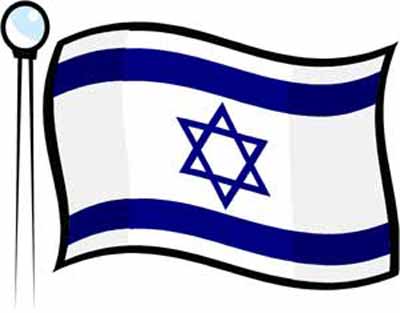Israel's security cabinet to convene on ceasefire proposal
 Tel Aviv/Gaza - The Israeli security cabinet was to convene Saturday night to discuss a ceasefire proposal, as the military campaign entered its fourth week and airstrikes and artillery fire continued overnight and during the day across the Gaza Strip.
Tel Aviv/Gaza - The Israeli security cabinet was to convene Saturday night to discuss a ceasefire proposal, as the military campaign entered its fourth week and airstrikes and artillery fire continued overnight and during the day across the Gaza Strip.
In Cairo, Egyptian President Hosny Mubarak demanded an immediate ceasefire.
"I call on the (Israeli) leadership for an immediate unconditional ceasefire and a complete withdrawal of Israeli troops from the Strip," Mubarak said in an address on national television.
There has been speculation that Israel might surprise and go for a unilateral cessation of hostilities, bypassing the Egyptian-mediated talks.
A Hamas spokesman in Lebanon said his organization would continue to fight the troops left in the coastal strip and until the blockade on the Gaza Strip was lifted.
"As long as Gaza is occupied by Zionist soldiers the confrontations will continue, even if Israel approves a unilateral ceasefire," Osama Hamdan told Deustche Presse-Agentur dpa by phone.
A unilateral ceasefire is supported by United Nations Secretary General Ban Ki-moon, who is visiting the region.
Meanwhile, several Israeli shells landed in the early morning at a UN school in the Gaza Strip, where 1,800 Palestinians were taking shelter. During an attempt to evacuate them, another shell hit the building, killing two children, aged 5 and 7, as well as a woman, apparently their mother.
"We need to find out if there are war crimes being committed," said Chris Gunness, the spokesman for UNRWA, the UN agency for Palestinian refugees, calling for an investigation.
The Israeli military said it was investigating the incident.
Several UN facilities in Gaza have been hit in Israel's Operation Cast Lead, including facilities being used as makeshift shelters - killing 40 people in one incident alone - and a central compound where a warehouse containing large supplies of food and medicine was burned to the ground.
The UN's High Commissioner for Human Rights, Navi Pillay, said acts in the Gaza Strip "may constitute war crimes."
The Israeli military has said it operates in accordance with international law.
Israeli warplanes hit about 50 targets during the night, including rocket launching sites, tunnels under the Gaza-Egypt border as well as mosques used as points from where militants fired at Israel, a military spokesman said.
At least 13 Palestinians were killed Saturday in Israeli military action, medical sources said.
Israeli Prime Minister Ehud Olmert's office on Friday said there had been "significant progress" in talks in Cairo.
Israel and Hamas, the Islamist group which has de facto control of the Gaza Strip, do not talk to each other directly, negotiating instead through Cairo.
The Egyptian government has been pushing for a ceasefire based on a short-term "humanitarian" truce, followed by negotiations on a longer-term ceasefire that would address Israeli security concerns and the militants' demand that the borders be opened.
Mubarak's latest statement calling for an immediate ceasefire may be a sign of a shift in Cairo's position, as there was speculation Israeli troops could remain in the Gaza Strip even after an initial ceasefire while the details of a more "durable" agreement, as the government has been pressing for, were worked out.
Israeli Foreign Minister Tzipi Livni signed a bilateral deal with US Secretary of State Condoleezza Rice in Washington on Friday, aimed at helping to curb arms smuggling into the strip, as part of an effort to secure a ceasefire between Israel and Hamas militants.
Livni called it a "historic" deal that was a "vital component for the cessation of hostilities."
Many smuggling tunnels were located under the Egyptian-Gaza borders, though Israel has been targeting them as part of its operation. On Saturday alone, over 70 airstrikes took place in Rafah against tunnels, an Israeli military spokesman said.
Mubarak, in his television speech, said Egypt was securing its own border with the Gaza Strip and would never accept any foreign observers on its land.
At least 1,203 Palestinians have been killed and over 5,100 injured since Israel began its military campaign on December 27, in an attempt to stop Palestinian rocket fire at southern parts of the Jewish state. The first week focused on airpower. On January 3, ground troops moved into the enclave.
Three Israeli civilians and 10 soldiers have died since the operation began, and over 700 rockets have been fired from Gaza.
Some 14 rockets were fired at Israel Saturday, and the military said four soldiers were seriously injured in ground operations, most likely in a friendly-fire incident. (dpa)